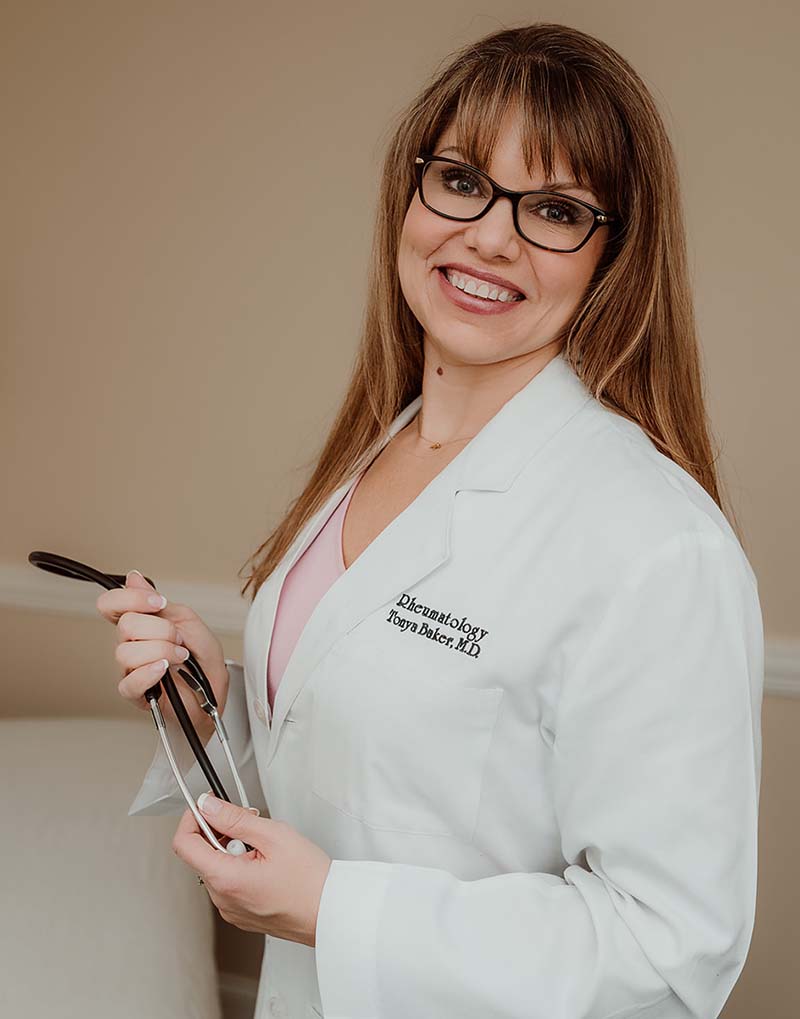Hi, I’m Dr. Baker. And Welcome to a New Standard of Care.
When I put on my stethoscope each morning, my detective side takes over. Diagnosing a chronic condition is a medical puzzle – complicated, tricky, and often missing a few important pieces. When I became a rheumatologist, I was excited to help patients uncover the disease behind their symptoms so I could empower them to take their life back and regain their health.
After graduating from the American University of the Caribbean Medical School, completing an internal medicine residency at the University of Tennessee Medical Center, and finishing a rheumatology fellowship at the University of Kentucky, I joined an insurance-based, fee-for-service rheumatology practice in Knoxville. Immediately, I began to build meaningful relationships with my patients, but insurance companies soon stood in my way of delivering the level of care I was committed to providing.
Rheumatologists need to do more than clean up the ashes of a disease with a bottle of painkillers – we need to douse the embers burning below before they cause anymore damage. Unfortunately, insurance reimbursements slowed me from finding the source of the fire and grabbing the extinguisher.

Why I Started Rheumatologix
Frankly, I was tired of seeing patients suffering from autoimmune disorders rushed through appointments and bounced from one expensive treatment to the next without significant improvement in their condition. As frustrating as this was to me, I know how much more so it was for my patients. But that’s the way most modern medical practices, rheumatology or otherwise, are run.
Rheumatologists often have to maintain a large number of patients to cover the cost of doing business with insurance companies and cannot give their patients the time needed to truly listen, understand, and work together to solve the problem. Let’s not even mention the lack of available appointments for patients suffering from acute flare-ups.
Treating autoimmune and similar disorders takes time—time to discuss, to empathize, and to create personalized solutions that include both traditional medications and alternative therapies. Our unique membership model allows me to devote that time to my patients so I can listen attentively and explain complex data in understandable terms. It also lets me incorporate my past experience as a personal trainer to work with my patients in the areas of diet and nutrition, physical training, and even stress management—all disciplines that can have a significant impact on a person’s overall health.